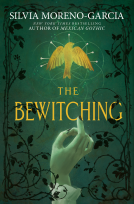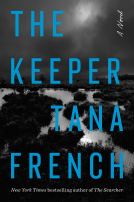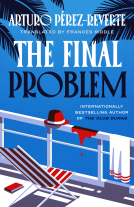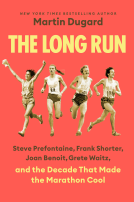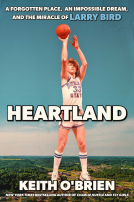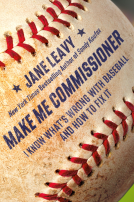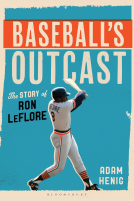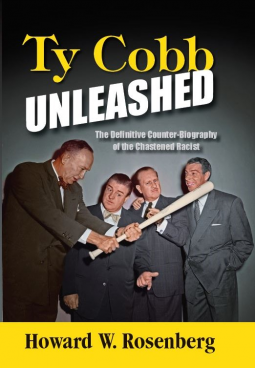
Ty Cobb Unleashed: The Definitive Counter-Biography of the Chastened Racist
by Howard W. Rosenberg
This title was previously available on NetGalley and is now archived.
Send NetGalley books directly to your Kindle or Kindle app
1
To read on a Kindle or Kindle app, please add kindle@netgalley.com as an approved email address to receive files in your Amazon account. Click here for step-by-step instructions.
2
Also find your Kindle email address within your Amazon account, and enter it here.
Pub Date Jun 14 2018 | Archive Date Nov 15 2018
Tile Books | 554 pages, 388 graphics
Talking about this book? Use #TyCobbUnleashed #NetGalley. More hashtag tips!
Description
Was or was not Ty Cobb a racist? For three years, there has been an unresolved standoff between two 2015 biographies of the Hall of Fame player. One of the two, as of March 2018, was in the top 20 of baseball bestsellers on Amazon.com: the paperback version of Charles Leerhsen's Ty Cobb: A Terrible Beauty (Simon & Schuster). That book has been publicized well. A five-minute video that Leerhsen commissioned for 2017, as an exclusive to the Web site of conservative commentator Dennis Prager (https://www.prageru.com/videos/calling-good-people-racist-isnt-new-case-ty-cobb), has had around 3.5 million views, according to the link above. Although the paperback edition was issued in early 2016, the conservative news Web site the Federalist named it one of its notable books of 2017 (http://thefederalist.com/2017/12/15/the-federalists-notable-books-of-2017/). The other 2015 Cobb biography is Tim Hornbaker's War on the Basepaths: The Definitive Biography of Ty Cobb (Sports Publishing). One major subsequent try has been made to weigh in on Cobb and his alleged racism: Steven Elliott Tripp's 2016 Ty Cobb, Baseball, and American Manhood: A Red-Blooded Sport for Red-Blooded Men (Rowman & Littlefield). Tripp's book, while a worthy scholarly work, did not explicitly try to reconcile Leerhsen and Hornbaker.
Howard W. Rosenberg is the definitive biographer of 19th-century Hall of Famer Cap Anson. That includes being the horse's mouth on Anson's racism (https://howardwrosenberg.atavist.com/racism-bbhistory), especially its alleged impact on the drawing of the sport's "color line" in the 19th century. In Ty Cobb Unleashed, he applies a similar comprehensive approach to Cobb, who history buffs consider the most disliked star white player of pre-steroid times. For weighing in on the two 2015 books, an effort that also includes redoing big parts of the Cobb story, Ty Cobb Unleashed may be among the most impactful baseball books in recent memory. Most previous books are not worth revisiting with the closest of scrutiny. But the two Cobb ones no doubt are, especially because, in media coverage, Leerhsen's more revisionist one has so dominated the other. Besides what it says about Cobb, Ty Cobb Unleashed can be of interest to today's largely passive media watchdogs of U.S. nonfiction publishers, as a study of their technical standards. Such watchdogs today, sadly, hardly shed light on the nuts-and-bolts editorial practices of nonfiction publishers, even though books are so widely read and thus have the potential to be more influential than tweets. Ty Cobb Unleashed even recommends a practice that such publishers should adhere to in the future in their history titles.
The significance of Ty Cobb Unleashed can also be gleaned from noting the huge 20th-century player who most overlaps with Cobb, Babe Ruth. For being the top exemplars of offensive skill in the deadball era (Cobb) and the lively ball one (Ruth), Cobb received the most votes and Ruth the second-most when the inaugural National Baseball Hall of Fame class was voted on in 1936. In their playing and post-careers, they drew subjective newspaper coverage that was positive overall (Ruth) and closer to neutral overall (Cobb), each in volume apparently unmatched among their white peers in the 20th century.
In the book genre, Cobb and Ruth have been diverging for many decades, as far their biographers' success in nailing down the positives and negatives in their persona. Ruth’s were mostly aced in the 1970s by multiple authors, especially Robert Creamer (Babe: The Legend Comes to Life), Kal Wagenheim (Babe Ruth: His Life and Legend) and Marshall Smelser (The Life That Ruth Built). Ruth books since then have mostly added incrementally to the public's understanding.
In contrast to each passing Ruth book, Ty Cobb Unleashed becomes the second recent Cobb one to present him in such a radically new light (this one with documentation galore) that people may greatly change their perceptions of him, both positively and negatively. The book does so, in part, by running corrective rings around some trailblazing-sounding parts of one of the two 2015 ones. Plus, its stress on Cobb’s 32-year post-career, 1929 to 1961, makes it both the most authoritative and, overall, definitive book on that period. That span includes 1960 and 1961, the years featured in the 1994 movie “Cobb.” The movie, a limited release in theaters, has gained a second wind as an online video rental.
For being the most transparently presented, subjective Cobb book to date, Ty Cobb Unleashed could become the Cobb one that journalists and scholars will want to consult first on anything controversial. After all, they should want to know which earlier ones to not accept at face value on particular subjects, and which ones to cite for their unique contributions. In essence, there are two camps of Cobb biographers: the currently controversial (Al Stump, Charles C. Alexander -- although narrowly, for his racial research -- and Leerhsen) and the currently overlooked (Richard Bak, Don Rhodes and Hornbaker). Plus, there are key article writers (Leigh Montville, Doug Roberts and William R. Cobb). Ty Cobb Unleashed declares to its readers those areas that it cedes large swaths to, so as not to overlap with other authors. For example, it notes that a Cobb grandchild, Herschel Cobb, wrote a 2013 book whose insights are largely outside its scope: interactions with other generations of his family, especially grandchildren.
Many baseball buffs rightfully consider Creamer's 1974 Ruth book the richest and, in many respects, the last anecdotal word on him, since Creamer spoke to former teammates and contemporaries. To try to approximate the truth, Creamer got to ask questions of first-hand observers of Ruth, but, of course, not of Ruth himself. No such book was ever written on Cobb. But Ty Cobb Unleashed could be the “reality show” inverse to Creamer’s: it both quotes Cobb extensively, along with proponents, detractors and neutral observers. Plus, the vast majority in it was said while the main character, a big-time letter writer, was still alive and thus potentially able to weigh in.
A Note From the Publisher
Charles Leerhsen’s Ty Cobb: A Terrible Beauty (Simon & Schuster)
In Google Books or on Amazon.com, you can type in word strings that I quote in order to, at minimum, find most page number equivalents in the print edition.
Tim Hornbaker’s War on the Basepaths: The Definitive Biography of Ty Cobb (Sports Publishing)
As of this writing, the Google Books version has too many hidden pages and no page numbering, and the print edition
has no index. The full-text search solution? Buy it on Kindle for around $11.
See what casual readers thought of the two 2015 books, at GoodReads.com and Amazon.com:
Charles Leerhsen’s Ty Cobb: A Terrible Beauty (Simon & Schuster)
(more than 200 reviews at GoodReads.com, at the following link:
https://www.goodreads.com/book/show/22609487-ty-cobb)
(more than 300 reviews at Amazon.com, at the following link:
https://www.amazon.com/Ty-Cobb-Terrible-Charles-Leerhsen/dp/1451645767/ref=tmm_hrd_swatch_0?_encoding=UTF8&qid=&sr=)
Tim Hornbaker’s War on the Basepaths: The Definitive Biography of Ty Cobb (Sports Publishing)
(a handful of reviews at GoodReads.com, at the following link:
https://www.goodreads.com/book/show/22750130-war-on-the-basepaths)
(about two dozen reviews at Amazon.com, at the following link:
https://www.amazon.com/War-Basepaths-Definitive-Biography-Cobb/dp/161321765X/ref=tmm_hrd_swatch_0?_encoding=UTF8&qid=&sr=)
Advance Praise
None, and with one exception ("Cobb" director Ron Shelton, who hasn't weighed in), it wasn't elicited from individuals.
None, and with one exception ("Cobb" director Ron Shelton, who hasn't weighed in), it wasn't elicited from individuals.
Available Editions
| EDITION | Hardcover |
| ISBN | 9780972557443 |
| PRICE | $32.00 (USD) |
Links
- Cap Anson Web site (owned by Brad Wackerlin)
- 2006 Toledo Blade Feature: Anson and Moses "Fleet" Walker
- Wikipedia's Mike "King" Kelly entry; Rosenberg wrote most of it
- 2016 Essay on Cap Anson's Racism (on the longform Web site The Atavist)
- 2016 Baltimore Sun long letter on Anson and the color line
- Wikipedia's baseball color line entry; Rosenberg wrote trickiest part of opening paragraph and most of the Origins subhead
- Ty Cobb Unleashed Web site
- Amazon.com link
- Barnes & Noble.com link (also: B&N, but not Amazon, has current stock from me of Cap Anson 3 and Cap Anson 4)
- press release announcing Ty Cobb Unleashed
- July 1, 2018, Arkansas Democrat-Gazette feature (permalink)
- July 1, 2018, Arkansas Democrat-Gazette feature (a mostly dead link)
- October 24, 2018, WWI Christy Mathewson/Cobb gas mystery feature
- September 22, 2018, first full-blown review: USSportHistory.com
Average rating from 5 members
Featured Reviews
 Drew K, Reviewer
Drew K, Reviewer
Ty Cobb is the man everyone loves to hate, and I went into this thinking my mind was firmly made up. I’ve read a few biographies of Cobb and truly wondered what could possibly be new. Rosenberg has turned over new stones and presents a very different view of the man. I’ve found myself looking for more so I can fully develop a new opinion.
Readers who liked this book also liked:
Silvia Moreno-Garcia
Historical Fiction, Literary Fiction, Sci Fi & Fantasy
